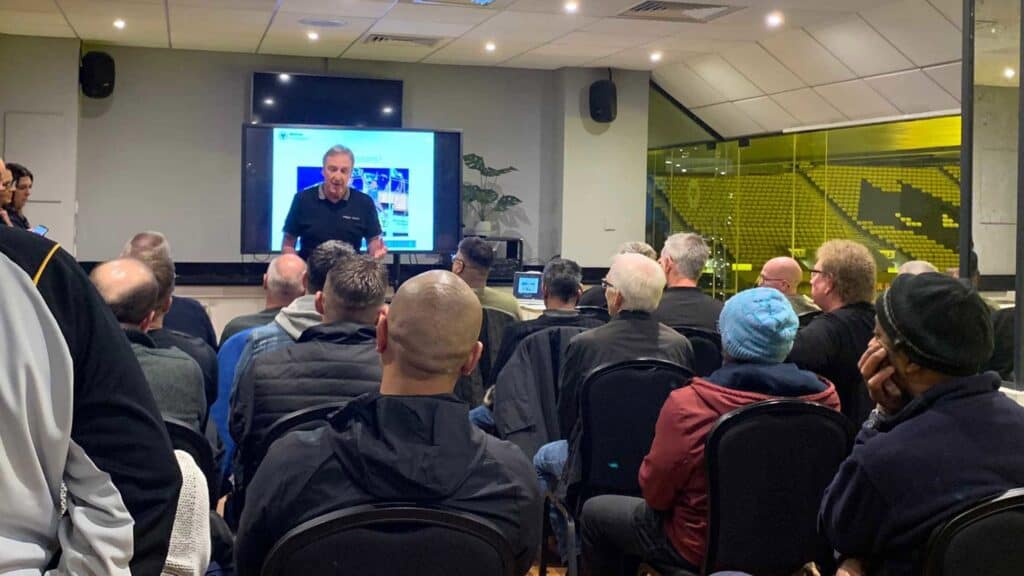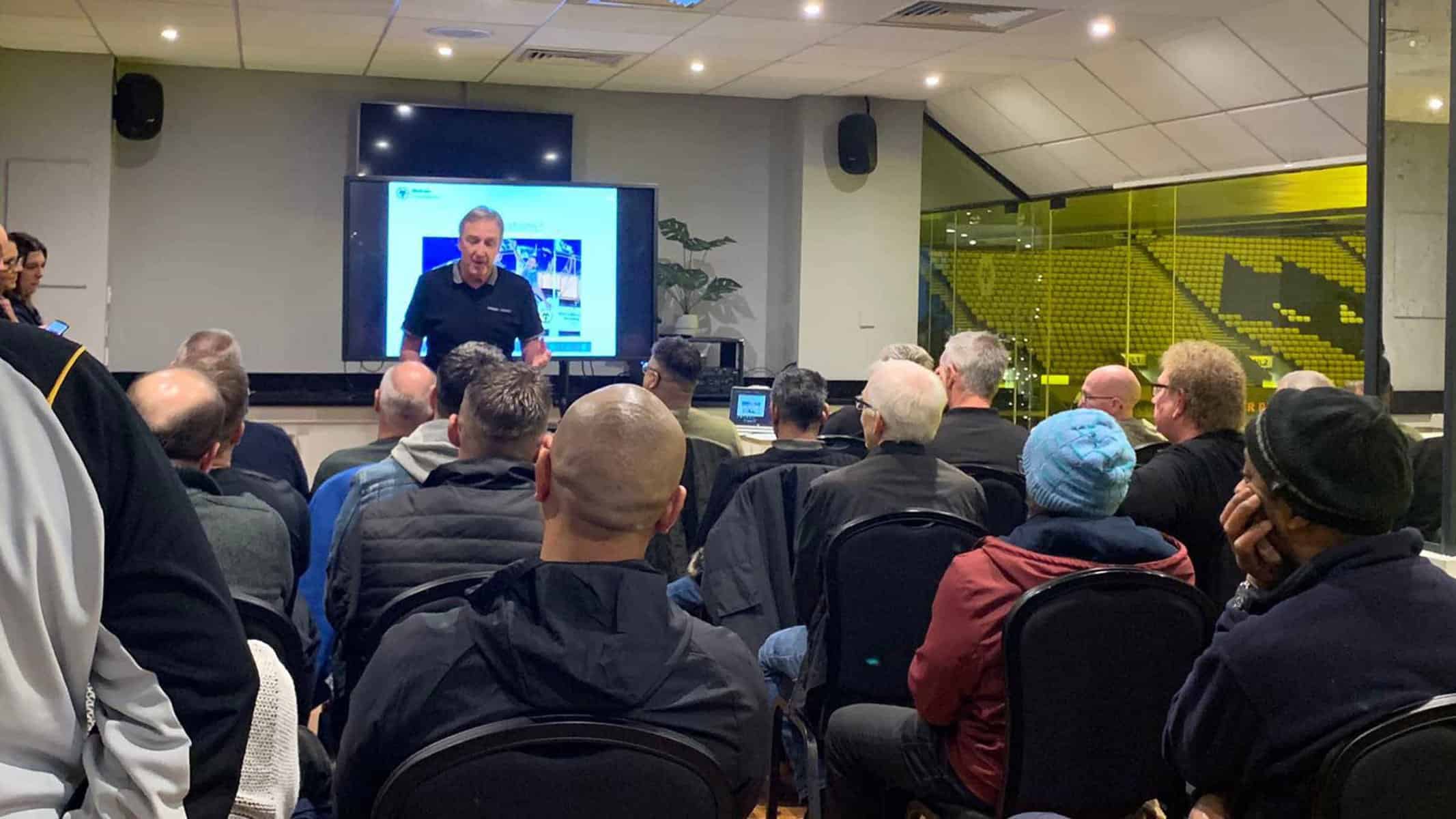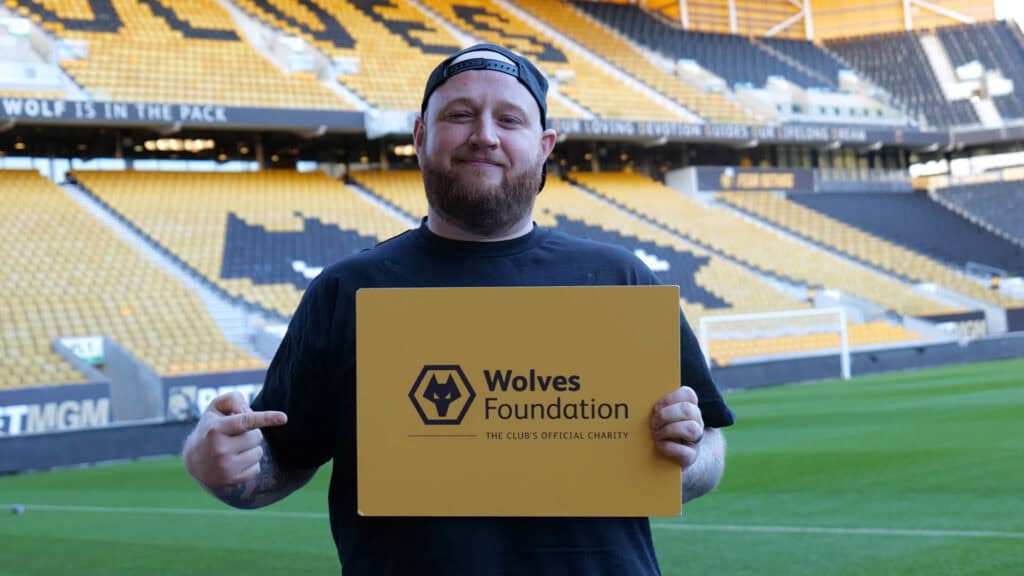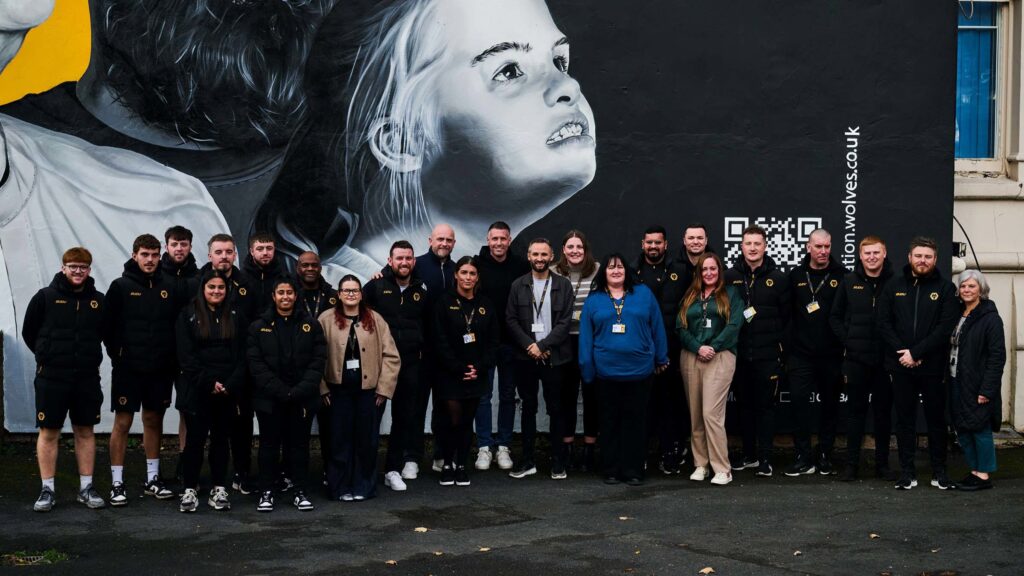
Wolves Foundation were delighted to team up with the Royal Wolverhampton NHS Trust and former Wolves’ favourite Steve Daley for a prostate cancer awareness event at Molineux.
More than 30 men from across the city, including several who attend the Foundation’s Head 4 Health project, attended the session to hear both from specialists from the RWT and Steve himself, who is now cancer-free after receiving treatment over the last year.
Alongside Steve telling his story, Jenny Akins and Nicola Farnell – the urology nurse specialists at the RWT – offered information around the potential symptoms of prostate cancer and advised all men over 50 to have an annual PSA test, a blood test which can help make a diagnosis.
The visit followed another initiative delivered by NHS staff before Wolves’ Premier League fixture against Newcastle back in August, when they were again joined by Steve to speak to supporters in the Fan Zone to raise awareness of the disease.
“From the first visit to my GP – after I had been suffering from back ache and struggling to pass urine – through the testing and diagnosis to surgery at New Cross Hospital, the NHS were brilliant with me all the way through,” said Steve, not only a former player at Wolves but also now Vice-President of the club’s Former Players Association.
“I was very fortunate. Because I went to the doctor when I knew something wasn’t right the early diagnosis probably ended up saving my life, and I would encourage men who have any concerns, or just want to find out more information about what to look out for, to always ask for help.
“I sometimes think we men believe we are invincible, that something like prostate cancer will never happen to us.
“But obviously it can, and it happened to me, but fortunately with some fantastic care from the NHS, after surgery and treatment I was given the all-clear.
“Because of how well the NHS looked after me, I always said I would help them with trying to raise awareness as much as possible.”
Rachel Smith, health & wellbeing manager at Wolves Foundation, said the club’s official charity were pleased to be able to link up with the RWT to host the evening.
“We are always really pleased to link up with the RWT to help them raise awareness of different health issues which can affect people across the city,” said Rachel.
“This particular evening was really important in passing on important information – Jenny and Nicola were fantastic in talking about the symptoms people should be looking for and Steve’s story is such a positive example of how early diagnosis can have such a major impact.
“It was a very good turnout both of men who already attend other Foundation projects but also those who had seen the event advertised and were keen to come along and find out more.
“We are really grateful to Steve and the RWT staff for giving up their time and delivering such an important session for men from across the community.”
Among those attending the event were 76-year-old Geoff Finney and 62-year-old Phil Barrett, both of whom, like Steve, have been treated successfully for prostate cancer.
“The event was really informative and there was a good turnout,” said Geoff.
“I went along because I thought if I could share my personal story like Steve, it might help others to get checked.
“It might mean someone comes forward because they shouldn’t be frightened of getting checked.
“There were plenty of people there coming up to an age where it’s more prevalent so there needs to be more awareness.”
Phil added: “It’s fantastic that people like Steve come and talk about it because it took me 15 months to do something about it.”
Signs for men to look out for include needing to pass urine more frequently, needing to rush to the toilet, difficulty in starting to pass urine or straining or having a week a flow, feeling that your bladder has not fully emptied and any blood in urine or semen.
Certain groups of men are at increased risk of a positive diagnosis, with most cases diagnosed in men over 50, prostate cancer being more prevalent in black men, and previous cases in family history.











